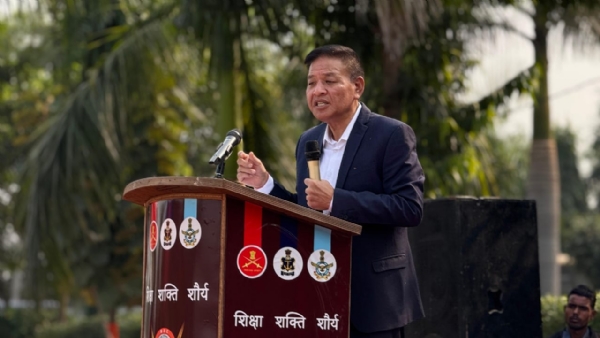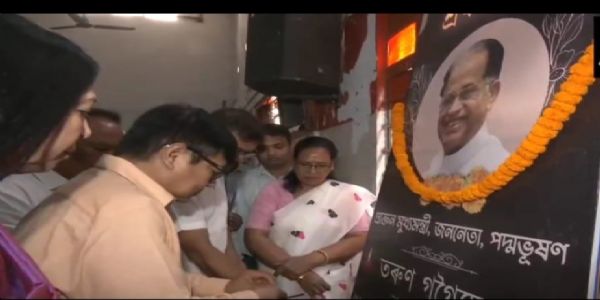
Lucknow,
23 Nov (HS): President Penpa Tsering of the Tibetan Government in Exile (Central
Tibetan Administration—CTA) delivered a comprehensive presentation on Tibetan
history, culture, and the current situation in Tibet. He explained that the
Tibetan script evolved from the Indian Gupta script. He emphasized Tibet's
long-standing role in preserving the Buddhist teachings of India's ancient
Nalanda tradition. He said these cultural traditions continue to serve as an
important repository of ancient Indian knowledge.
On
the evening of November 22 President Penpa has arrived in Lucknow, Uttar
Pradesh. He is here as part of a campaign to mobilize public support worldwide
for the liberation of Tibet from Chinese occupation. During his visit, Penpa
will hold discussions with prominent politicians, intellectuals, various social
organizations, media institutions, youth, students, and people from various
sections of society.
In
the same sequence, President of the Tibetan Government in Exile (Central
Tibetan Administration-CTA) Penpa Tsering on Sunday morning, met with several
political figures in Lucknow , the capital of Uttar Pradesh. He discussed the
current state and direction of Tibet and sought cooperation in maintaining its
autonomy. The President of the Tibetan
Government in Exile (Central Tibetan Administration-CTA) addressed aspiring
army officers at the Warriors Defence Academy, Lucknow. He provided detailed
information on Tibetan history, culture, and the current situation in Tibet.
Dr. Sanjay Shukla, Regional Coordinator (Uttar Pradesh and Uttarakhand) of the
Core Group for Tibetan Cause, provided the introduction to the program.
He
was welcomed by the special guests at the programme, Regional Organisation
Minister of Akhil Bharatiya Vidyarthi Parishad Ghanshyam Shahi, former senior
officer of Intelligence Department of Indian Army Brigadier Rakesh Bhatia,
Regional Organisation Minister of Ex-Servicemen Service Council Major Anand
Tandon, JP Singh of JP Group of Institutions, senior journalist Dilip Shukla
and Director of Warriors Defence Academy Gulab Singh.
Tibetan
President Pempa Tsering expressed concern about large-scale dam construction
projects in Tibet and warned that these developments could have long-term
impacts on downstream countries. Tibetan President Pempa Tsering stated that
His Holiness the Dalai Lama assumed spiritual and temporal leadership on
November 17, 1950, under emergency circumstances following the Chinese
government's occupation of Tibet. They discussed the Seventeen-Point Agreement
and His Holiness the Dalai Lama's efforts to negotiate peacefully with the
Chinese government.
The
Sikyong then briefly described the formation of the Tibetan Administration in
Exile, the development of Tibetan democratic institutions under His Holiness's
guidance, and the establishment of Tibetan settlements. He expressed gratitude
to the Indian government and people for their long-standing support, stating
that this is crucial for the survival of the Tibetan community. Tibetan
President Pempa Tsering emphasized that the Tibetan struggle is based on
non-violence and peaceful resolution.
Speaking
on current conditions inside Tibet, Tibetan President Penpa Tsering said that
Tibetan children are increasingly being placed in government-run boarding
schools where the primary language of instruction is Chinese. He stressed that
this threatens the preservation of Tibetan language and culture. He said that
Tibetan Buddhist institutions are facing increasing pressure under policies
aimed at Sinicization, and the Chinese government's illegitimate attempts to
interfere in the process of identifying the reincarnation of His Holiness the
14th Dalai Lama are widely considered politically motivated.
Hindusthan Samachar / Abhishek Awasthi








